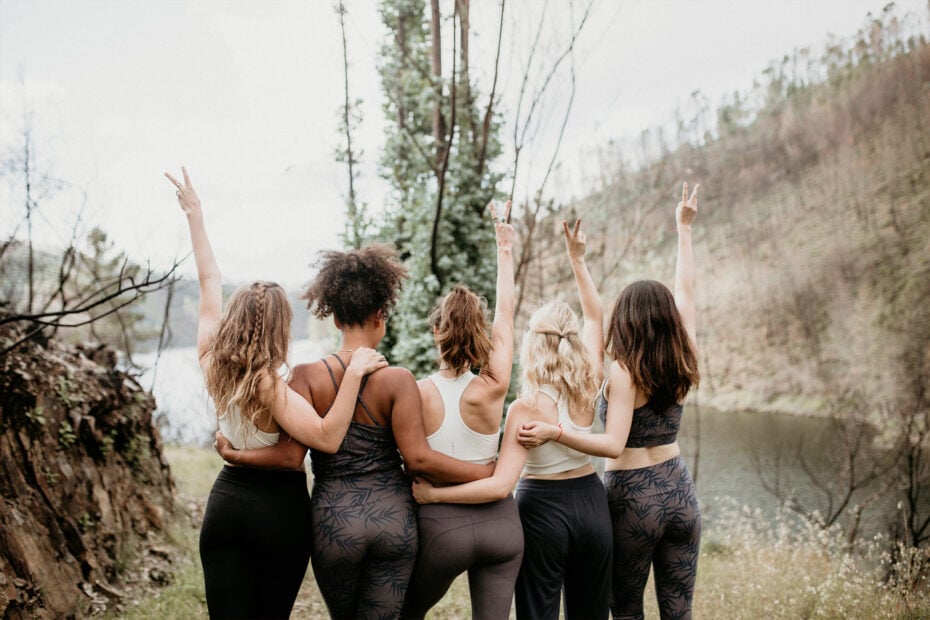10 Rules for Healthy Close Friendships
Friendship is the foundation for every relationship, so knowing how to be a good friend and what to look for in one is invaluable.
I want to emphasize that no one is perfect. Some of the advice I'm sharing are things I've learned through trial and error. Use this list as a guideline to see in which areas you can improve or whether your current friends are pulling their weight.
If you have a truly toxic friend, it's up to you whether you want to continue the relationship knowing they may not change, although you may want to ask yourself why you want to spend time with someone who brings you down.
On the flip side, you probably know what makes a good friend: someone honest, trustworthy, easy to talk to, funny, and supportive. Even so, every relationship requires time and energy, so here are 10 rules to keep in mind for sustaining healthy long-term friendships.

1. The give and take is equal.
Yes, opposites can attract, but this might not always be mutually beneficial. If one is always giving and the other is always taking, the friendship is not balanced, and, eventually, there will be resentment.
2. Good friends spend time with each other.
Sure, life can get in the way, and it can be challenging at times to make plans. But if half a year goes by without meeting or meaningful communication, don't be surprised if the person you consider your best friend no longer makes you a top priority.
8. Be reliable and stick to your word.
Don't be that person who is always an hour late, cancels plans at the last minute, or leaves others hanging. Your time is not more valuable than anyone else's, and it's selfish. At best, people will tolerate it but will also think of you as flaky and inconsiderate. If you have a good reason for cancelling, make sure you are the one who makes the plans for the next meetup.
7. Be communicative.
Don't expect others to read your mind. If you're upset about something, don't bury it. If you don't want to do something, don't make lame excuses and give your friends the runaround. It's also good practice to verbally express how much you appreciate your friends.
6. Quality over quantity.
This year I decided I'd rather have a few close friends instead of scattering my energy and trying to catch up with a bunch of people. Even having one true friend is more valuable than 500 friends on social media you rarely see in real life. Consider how many close friends you have time for, and make the effort to deepen those relationships.
5. Don't be a garbage dumper.
If you're complaining all the time, you're treating your friend like a trash can. While it's normal to confide in a close pal, no one should have to listen to someone's whining 24/7. And if you're feeling like the garbage can, develop boundaries and rethink the relationship if your friend doesn't want to adapt. Personally, I watch out for people with unresolved childhood issues. Hurt people hurt people. If they don't take steps to deal with their trauma or abuse, they might take their anger out on you, sooner or later. Consider whether this is something you can tolerate.
4. Don't judge or control others.
If you think you're helping others by giving them advice when they haven't asked, it's judgment. If you're criticizing instead of inspiring, controlling instead of being supportive, your friends won't want to confide in you. They'll just want to avoid feeling judged.
3. Good friends grow together.
This doesn't mean you have to take up every hobby your BFF is into. Growing together can simply mean being supportive of one another. If you decide to grow in a positive direction, such as to stop gossiping, your friend will either have to grow with you or try to drag you down. Good friends need to be on the same wavelength, so you have to decide what kind of energy you want in your life.
2. Actually like the person.
This should be an obvious one, but I find that many people keep friends out of habit, long after they've outgrown them. Just because someone wants to be your friend, do you really want to be theirs? Ask yourself if you genuinely enjoy spending time with this person. Do you miss them if you don't see them for a while? Do you feel happy when you're with them? The ultimate test for great friendship chemistry is when you can sit with them in silence and feel completely comfortable.
10. Emotional trust.
I'm not talking about just trusting someone to be on time or to do what they say they would. Can you trust a friend with your secrets, personal problems, or even share joyful experiences, knowing they'll be happy for you? If not, the friendship cannot go deeper. A person has a better chance of earning emotional trust if they abide by the other rules on this list.
Here are my 10 Tips to Make Friends as an Adult.
Do you have any more suggestions for how to be a good friend? Let us know in the comments below.
khat chuol Rik
wrote:relative of best friends is Totally off limits
Abella Kramer
wrote:These are some really good things but, when I have friends I learn to avoid my feelings and try to focus on theirs is that a bad thing???
Rhonda Bienes
wrote:All of these items on this list really gives the meaning to the word friendship because all this really counts when you truly think about it Rhonda
Bines
Chidera261
wrote:I feel like having a best friend is all about care and feeling with understanding ✅✅
Annie Zhu
author wrote:Yes!
Insiya .p
wrote:I love ur rules